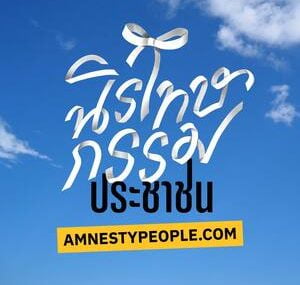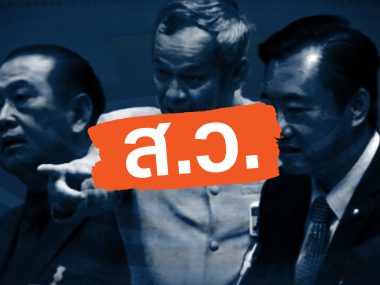In recent years, computers and internet have become increasingly important in our modern lives and, by the same token, the number of the “computer crimes” has been worryingly growing as well. Therefore, the Computer-related Crime Act B.E. 2007 (hereinafter CCA) has been enacted in order to specifically cope with cyber crime problem.
The CCA has broadly defined a criminal offence as any illegal act committed to both the computer system and the content such as accessing a computer system without permission, eavesdropping a third party’s computer data and disrupting a third party’s computer system, as elaborated in Section 5-13 or so-called “offense to computer system,” while the “offense to content” are in Section 14-16.
According to our research on the impact of the CCA*, the statistics gathered during July 2007 to December 2014 show that there have been 62 cases regarding computer system offences and 215 cases regarding the content reaching the court throughout the certain period.
Hence, the existing CCA has been criticized on whether it should include the offense against the content or not, since it was initially promulgated on the purpose of preventing and suppressing any acts that can technically cause damage to solely a computer system.
Besides, if deeply considering through the CCA, we will find that some offences stated in some Sections are deemed to be duplicate to other laws such as in Section 14(4) on the issue of pornography which repeats Section 287 of the Criminal Code on the offence of publicizing pornographic, or Section 14(3) on any computer data which violate the nation’s security which overlaps Section 107-135/4 of the Criminal Code, and especially Section 14(1), it has been repeatedly used in a set of defamation allegations, although the Criminal Code has covered defamatory offences as well as the defamation by means of publication in Section 326 and 328 already.
What is offence under Section 14(1) ?
According to the CCA, Section 14(1) states that “if any person commits any offence…. (1) that involves import to a computer system of forged computer data, either in whole or in part, or false computer data, in a manner that is likely to cause damage to that third party or the public.” Law written broadly like this can lead to a variety of interpretation; thus, the offences filed under Section 14(1) have become diversified as follows:
1. Offence to computer system such as forging a file to destroy computer system
2. Fraud such as creating a forged website of a financial institution
3. Defamation
All 3 types of offences above are unquestionably different. The first two offences are deemed to cause damage to a large number of individuals or the public whereas the third offence is regarded more as a personal matter. Moreover, for the computer system offences and fraud, there is a tendency that the court will find an individual guilty. While, the ratio of dismissal and withdrawal is much higher in the defamation cases.
However, the statistics during July 2007 to December 2011 displays that the lawsuits regarding the CCA which the Court of the First Instance has already had verdicts are mainly filed under Section 14(1). The offences most frequently found are defamation, fraud and offense against computer system respectively.
What is Section 14(1) aimed to protect ?
The essential element of the offence under Section 14(1) centralizes on “forged computer data or false computer data,” making it different from the common defamation laws. According to the defamation laws, any act apt to bring another person into disrepute or hatred, regardless of the truth, is considered as a defamation offence.
Additionally, the initial objective of the legislation of this Section is to prevent and to suppress any fraudulent practice of computer data such as creating a forged website to mislead internet users and induce them to reveal personal information, known as ‘Phishing’. Section 14(1) is also aimed to fill a gaping hole of the offence of forgery of documents in the Criminal Code which the word ‘document’ was usually interpreted as merely paper document or other tangible materials but excluding forged electronics data.
However, based on the statistics, it turns out that Section 14(1) was most commonly used in defamation lawsuits, leading to a question of whether enforcing Section 14(1) with online defamation is legislatively in accordance with its aim or not.
Impacts of implementing Section 14(1) on defamation cases
1. Causing duplicate legislation: Since the Criminal Code has already covered the offence of defamation, and even if an imputation is made through the internet, it shall be regarded as a defamation offence by means of publication. The duplication could also lead to confusion in the interpretation and enforcement of laws causing too many cases in the court procedure.
2. Too severe penalty: According to the CCA, offences under Section 14(1) are subject to imprisonment for not exceeding 5 years and a fine of not exceeding 100,000 baht or both. While in the Criminal Code, the defamation offences are subject to imprisonment for not exceeding 1 year and a fine of not exceeding 20,000 baht or both and for the defamation by means of publication, the offender shall be punished with imprisonment not exceeding 2 years and fined not exceeding 200,000 baht. Therefore, when implementing Section 14(1) on the issue of defamation, the penalty will become intensely increased.
3. Cannot be compromised: The defamation case often concerns personal matters; hence, many cases are dismissed during the court process by compromising. A compromise reached by all parties can be a compensation or making an apology. Whereas offences under Section 14(1) of the CCA are unable to be compromised. Even though, a settlement is made by a complainant and a defendant, the offence under Section 14(1) still remains. This creates impact on the defendant and also unnecessarily makes cases piled up in the court process.
4. Regardless of good faith nor public interest: according to the Criminal Code, Section 329-330, any defamation deemed to be an opinion or statement expressed in good faith or any imputation proved to be benefit to the public shall be considered of having a reasonable cause for guilty exemption or penalty exemption. While in Section 14(1), neither an exercise of individual’s rights to freedom to express opinion in good faith, nor a criticism for the public interest, it cannot be claimed as a reason.
5. Threatening the freedom of the media: As the online media has been hugely increasing nowadays and even the mainstream media have adopted their online channel to be another medium of communication; thus, when a defamation charge occurs, Section 14(1) is likely to be integrated in the charge. This causes more burden to the media as well as to the accused. Also, the tendency that the media would be prosecuted under Section 14(1) is continually increasing, affecting the atmosphere of freedom in the society.
Examples of the defamation cases regarding Section 14(1) which affect on atmosphere of freedom
16 December 2013, the Thai Royal Navy went to the police to report against Alan Morrison and Chutima Sidasathian, journalists from Phuketwan, local news agency in Phuket province, for disseminating defamatory information on phuketwan.com. The information leading to the charges refers to the Reuters report that alleged some Thai naval forces have been involving and profiting from Rohingya Muslim smuggling. The witness hearing dates are scheduled on March 2015.
4 February 2013, Natural Fruit Company filed defamation charges against Andy Hall, human rights researcher, for publicizing his research concerning migrant workers’ rights abuse in the canned fruit factory. The research content is relevant to the issue of employing children under the age of 15 with substandard wages. Hall’s research was published on the internet by the media, causing him to be prosecuted under CCA. Hall also faces a civil suit requiring him to pay for damages.
In midyear 2010, Songkram Chimcherd, an employee of the Thai Industrial Gases Plc and a member of Thai Industrial Gases Labour Union, was accused of sending a defamation email stating that a senior executive ordered him to stop participating in the Union’s activity. Later, the settlement between the parties was made. Although, the accuser withdrew the defamation charge, the lawsuit under CCA could not be withdrawn making Songkram had to deal with the remaining case. However, the case was dismissed by the court since it could not be proved whether the defendant was an indeed email sender.
A chairperson of the Doctors’ Alliance of Regional and General Hospitals filed a police report against Preeyanant Losermwattana, for disseminating false information and posting pictures of medical error on facebook. On 29 April 2011, after receiving a police summon, Preeyanant had to go to Surin in order to acknowledge the charge. However, a public prosecutor issued a non-prosecution order.
13 September 2013, Credit Union Klongchan Cooperative, leaded by Mr Supachai Srisupa-aksorn, former Cooperative committee chairman prosecuted Mr Monthon Kanlom, another committee chairman, editor of Thaipublica and others (6 people in total) for disseminating defamatory article about corruption in the cooperative. Later, the plaintiff withdrew the case on 2 June 2014.
13 June 2013, Prachachat website distributed an interview criticizing on how much the nation will be destroyed if allowing foreign investment companies to register their domains as “.thai”. Afterwards, the interviewee and the website editor was prosecuted by Better Living Management Co.,Ltd since the company was referred to in the interview. The case is now in the preliminary hearing procedure.
4 September 2012, two foreigners living in Pattaya prosecuted against Andrew Drummond, journalist and blogger, for allowing his blog website to be a public cyberspace for others to criticize them as pimps. For the defamation case, the defendant was found guilty on and received 4-month jail sentence, while the charge under CCA was dismissed since it could not be proved that the defendant realized that the criticism was a false statement.
Fonthip Watcharatrakul aka Pooklook, Miss Thailand Universe 2010 filed website Thaiday.com, under the Manager group, for publishing news that ruined her reputation in Super Bantherng Online column. The column criticized the plaintiff’s behaviour to be inappropriate, unlike a typical Thai woman. Two defendants were found guilty. The first defendant was fined of 200,000 baht while the second defendant was sentenced to 2-year imprisonment and fined 100,000 baht. The imprisonment sentence is suspended. Also, the court ordered the defendants to destroy defamatory statement in the website and pay for the damages, while the offense under the CCA was dismissed.
Ekkasit Wansom, chairman of the TOT board, filed a lawsuit against Manager Online website on 30 May 2011 for publishing news in a manner likely to defame him as well as the organization. The published news cited that the plaintiff, as a chairman of the board, has intervened in adjusting the organizational structure and took advantage of the commissions deduction on several projects. On 17 October2014, the plaintiff withdrew the case as the news article has been removed.
25 August 2014, Direkrit Chenkrongtham, Secretary General of the Office of the Administrative Courts, assigned an attorney to prosecute against Isara Institution, Mass Media Development Foundation of Thailand, Prasong Lert-rattanawisut, Director of Isara Institution and Mr Sanoh Sukchareon, editor of Isara News Agency, for broadcasting the news regarding the “little letter” claimed to be sent by President of the Supreme Administrative Court to unethically appoint a police official.
————————————–



